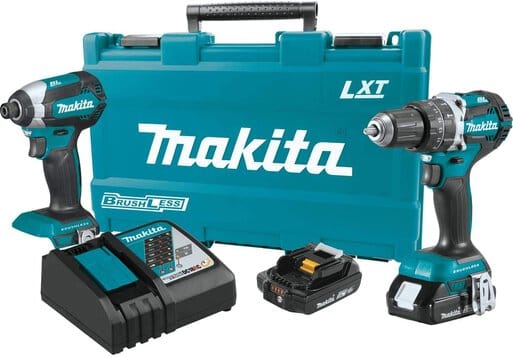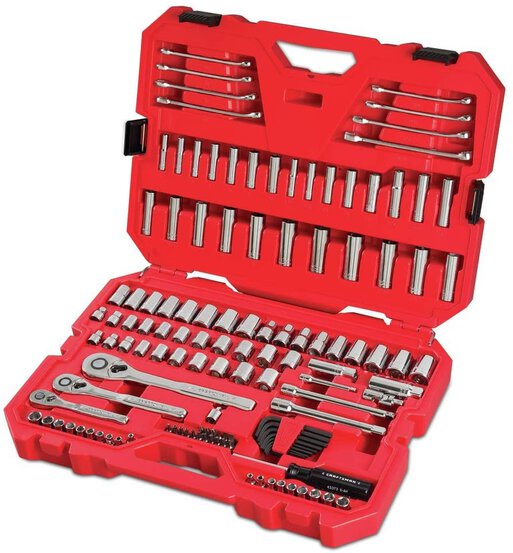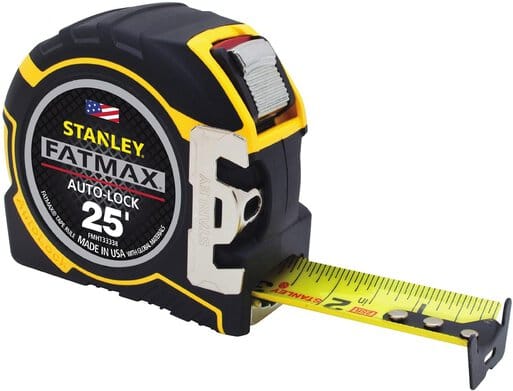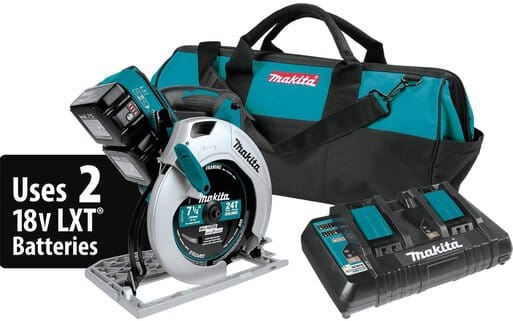Tools - who needs them?
Well, unless you happen to be filthy rich to the point of never doing anything at all for yourself - most people could use at least a basic set of tools at home.
For me - my father was a carpenter, and I was an extremely curious kid. I wanted to know how everything worked, and occasionally after taking something apart - it would make it back together and still work. ;)
My best friend and I grew up working on cars, to include replacing engines - before we were even legal to drive, and I later did a stint working as a mechanic, as well as building houses and doing remodeling for a few years, then again while working my way through college. I did some track time with some of my cars for a while, and to this day, generally build and fix my own things - cars, motorcycles, house and boat, so certainly to me - tools matter. When moving, I think it’s fair to say, likley over 50% of the weight of everything moved - is down to tools and books.
In this section, I’m going to give a general overview of types of tools, and a bit of insight into what to look for. Other sections we’ll go into more detail for specific purposes, reviews and the like.
Types of Tools
There are a handful of categories of tools I use, and while some overlap, it’s unlikely that all of them will be of interest to you so we’ll break them down into a few different categories:
-
Home - your basic minimal home toolbox for simple things around the house, and a bit more.
-
Carpentry - Moving a bit beyond the basic home tool kit every house should have into tools useful for framing, construction, etc.
-
Automotive - Tools most useful for automative and/or motorcycle repair, which have some overlap with Marine tools.
-
Power tools - Here I generally mean handheld power tools, including corded and cordless tools.
-
Shop Tools - larger not-usually-portable tools like drill presses, air compressors and similar, along with air tools
-
Marine - Tools specifically for Marine use working on boats, or notable items helpful in that respect.
-
Outdoor - chainsaws, weedeaters, and garden tractor related
-
Speciality Tools - anything else. I may split this out further later, but right now it would include soldering and some electrical focused tools.
Brands and notes
This one is a bit of a touchy subject, and there are lots of various fan boys and girls out there for some specific brands, who I may or may not agree with in some cases.
Unfortunately, like in so many other markets - a lot of consolidation of companies has occurred over time with companies buying out others, as well as the ongoing trend of offshoring to cheaper countries for manufacturing, and of course the never-ending chasing of cost cutting to increase margins to make the stock market happy.
As a result, some brands that used to be very good, or at least adequate - may no longer be so.
The sad story of Craftsman tools
As a specific example, Craftsman tools, along with Kenmore appliances, were established by Sears. Sears was an amazing company for quite some time - even selling pre-fabricated and kit houses from a long-ago paper catalog!
The Craftsman brand covered nearly all imaginable hand tools, lots of power tools, hand and shop tool boxes, and even power outdoor equipment from tillers to tractors. They were manufactured for Sears under contract by other companies - since 1927!
The general policy on their hand tools was simple - if you break it, bring it in and they replace it - no questions asked.
While I have no illusions that this was indeed a clever marketing ploy, their hand tools, while not being Snap-On - were quite serviceable and in fact - rarely broke without serious levels of abuse. Indeed, today - I still have Craftsman ratchets over 25 years old, and an ancient reciprocating saw that was passed on to me by my father. I’m guessing it’s at least 50 years old.
If you check the history of manufacturers for both the line of Craftsman and Kenmore brands - in general, they are, or at least were - solid manufactures, for example DeVilbiss (formerly a part of DeWalt) and Campbell-Hausefield making their air compressors and many air tools, Whirlpool making some of the appliances, etc.
So what happened?
Well - Sears was surpassed as the top US retailer back around 1990 by Wal-Mart, and has been struggling for some time. My own assessment is they just didn’t keep up on technology, or pricing, as people transitioned more and more to online purchases for ever-increasing numbers of goods, while malls in general were on the decline. Pricing pressures also likley came into play with companies like Wal-Mart and Amazon, who had much stronger online presences - and often cheaper prices. Sears has been closing stores for some time - which may be meaningless to some, but I’m sure many of us have fond memories of going ’tool shopping’ even as kids at the mall...
The Craftsman brand has been sold off, or at least in part, to Stanley-Decker. Meanwhile, Sears themselves retains rights to the name for their own offerings, and Lowes, ACE Hardware and others in general still carry some Crasftman-branded tools.
The problem, besides Sear’s general state of affairs - is Sears now seems to simply source Craftsman tools from random Chinese companies with a subsequent drop in quality, while Ace and presumably Lowes may use different manufacturers, so basically - I’m unsure if any of the Craftsman tools are ‘worthy of use’ at this point, or even how to tell them apart. Previously, there was a Craftsman Professional line of hand tools which were still a step below Snap-On, but closer and rather nice. I would problably still buy their older used sets, but what about ‘right now?’ Note the warrantee, at least at Sears, has now also changed, to include requiring a receipt (really? How about looking up the sale electronically? How about keeping the existing policy? I understand why the sinking ship that is Sears would do this, but it’s not making me want to purchase anything from them..)
Well, I did try to buy some new Craftsman - Sears was emailing on sales, and who doesn’t always need some new bit sets for power and hand drivers? I also felt kind of OK buying some stuff from Sears. So I bought a bunch of miscellaneous tools for myself ‘on behalf of my wife’ for Xmas - a few sockets, drill bits and misc bits. The first time I used one of the slotted screwdriver bits, in a hand screwdriver, to remove a screw on the boat - the bit bent, and snapped a second later. This was not a highly torqued specialty screw. With that level of non-performance, I don’t want a replacement - and indeed, immediately went out and added a few additional Klein multi-bit screwdrivers - one of which will permantly live on the boat, and some Makita bits.
So Craftsman?
Looking at the Craftsman (not Sears) web site, it looks like some tools are still American-made, which seems to imply Craftsman as bought on Amazon or at Lowes or ACE and similar - may still retain some level of quality, and reviews in general are 4+ stars, although you never know who is leaving the reviews or their relative skill level.
The warrantee there seems to be the orginal - no receipt required, lifetime warrantee for hand tools.
Perhaps there’s hope - I may try giving some of the ‘new’ Craftsman a shot via Amazon, Lowes or Ace in the future - we’ll see. For nostalgic reasons and what at least used to be a fairly OK tool brand - I hope the new stewards of the brand rebuilt faith as being quality tools.
But I’m done buying anything ‘Craftsman’ from Sears.
The state of disposable tools
Unfortunately, similar stories exist elsewhere. In the line of power garden and outdoor equipment, a LOT of consolidation of companies, or manufacturing, has taken place, with an awfully high number of formerly standalone brands being bought up by MTD Products.
MTD on the surface, is an American company. Cub Cadet, Craftsman outdoor equipment, Troy-Bilt, Bolens, Yard Machines, and more - are all ‘built’ by them. Apparently Toro also now outsources their non-industrial/non-commercial lines to them.
Some of these companies were well-known for quality. Do a search for ‘MTD quality’ or ‘Yard Machines quality’ sometime and draw your own conclusions. In 2008, MTD changed the engine manufacturer for Craftsman from Tecumseh to a Chinese company (per Wikipedia).
All I’m going to say here is beware - the solid brands of yesterday are not all universally as reliable today, and I personally will not buy any MTD manufactured products (I have in fact owned one accidentally - a Troy-Bilt gas weedeater combo - didn’t even last a season).
It’s a sad state of affairs, but find out who actually owns or builds the tools, even if you ‘know the brand name.’
So often enough, we wind up buying tools, sometimes even relatively expensive tools, remebering having hand-me-down tools or some tools from our childhoods that still work, and we expect the same type of quality today - but more often than not, it’s not there.
Regardless of your personal thoughts on climate change or all of the tons of plastic and garbage in general we’re all adding into the world at increasing rates, from a personal perspective - I’d prefer to buy something once when it comes to tools and larger dollar purchases, and I’m OK paying a bit more for that ‘priviledge.’ I’ll also take a US-made tool whenever possible, although some ‘US’ companies are also questionable on manufacture.
So what tools to buy, then?
Realistically, there are different expectations from tools. Casual use tools for the typical homeowner/apartment-leasor kitchen drawer - a few screwdrivers, a hammer that would make any carpenter laugh at, and a box cutter - that rarely see use….it probably doesn’t matter what brand it is, for the most part, unless it’s really used often.
Tools that are on the specialty side but rarely used - perhaps a tile cutter for a homeowner doing a single tile job…it may also make sense to go the ‘disposable’ or ‘questionabbe quality’ route, as let’s face it - HarborFreight and random Chinese-brand tools on Amazon - are pretty damned cheap. One-off or occasional-use tools that don’t need to be particularly precision-accurate - this is where IMO, you can save a few bucks, cross your fingers, and hope it’ll last long enough without breaking in normal use.
Anything outside of those, whether it’s a tool pouch, framing hammer, circular saw, sockets and ratchets I use often - I tend to go for quality, or best I’m able to. While it often does mean new purchases from my ‘favored’ brands, it’s now always meaning buying new - I’ve bought used both a 1989 316 John Deere Garden Tractor, and another 1990s 420 series - both in regular use today, and I couldn’t replace them with modern-day equivalents without spending a scary amount of money.
When it comes to Garden Tractors (ride-on lawnmowers with a bit more usefulness), I simply wouldn’t buy anything Lowes or Home Depot sells, as even the John Deeres there (LA series, IIRC) is more akin to the MTD/Yard Machines than my ‘ancient’ garden tractors or their higher-end models.
For general automotive hand tools - buying new, I’ll occasionally do Snap-On(mostly for ratchet and extension fill-ins to my shop and other tool sets), more often SK Tools, Klein Tools(mostly for multi-bit screwdrivers and electric-related tools), and occasionally Mac or Matco, and I’m reasonably OK with Kobalt. As mentioned, I may consider the not-Sears Craftsman in the future. Another option is buying used tools at garage sales or via eBay, although a warning on eBay - always check the orignal part # and models if looking for something specific, as well as the <not on eBay> pricing, as a LOT of eBay pricing for premium-type or popular brands is sometimes above retail. Having said that, I often do search eBay when I’m somehow coming up short on a single wrench or socket out of a set.
For carpentry and related hand tools, I tend to stick with Estwing for hammers although I also have some Stanley hammers I’ve had for 20 years, and have a combination of Stanley, Estwing, Klein, Kobalt and Husky for speed squares, tape measures, box cutters and knoves, screwdrivers and the like.
Don’t cheap out when it comes to tape measures - everyone should have at least a 25’ tape measure with a 1” or wider blade on it. Buy it once, and it’s there always working and is less likely to kink permanently or break.
For various squares and speed squares - always make sure the numbers and graduations are etched and not painted or inked onto the tool, or they will wear off over time. Finally, whil elevels are seemingly pretty simple devices, at least for longer levels in the 2-6’ range - it’s worth spending a few more dollars on a decent one that won’t easily warp or have the elements fall out. Whether for picture hanging or framing use, eveyone should have at least a 3’ level, with something like the 3’ Black and Decker being the minimum, ideally along with a 1’ magnetic level and a line level rounding out the kit. Go cheap on the line level but stick to a minimum quality on the others.
What about power tools and cordless?
In general - I have the same opinion across manufacturers of both. For quite some time, I resisted the urge for cordless, even though I had used some even when I was doing profressional remodeling work way back. Why? Batteries don’t last, and even today - they’re speciality items with specialty prices, although inside those expensive power packs - is really just a series of fairly-standard 1.5 or 3.7v lithium batteries (and they can generally be rebuilt yourself or you can have e.g. BatteriesPlus do it).
I did finally bite the bullet some time back and have been growing my cordless collection with a fury, although picking a single manufacturer is really in your best interest - over time, you wind up with numerous chargers and interchangeable batteries. When you think you need more batteries, buy a combo kit coming with (discounted) batteries - otherwise buy the bare tool you want.
Cordless and power tools in general is a big enough category I’ll cover it in depth separately here.



